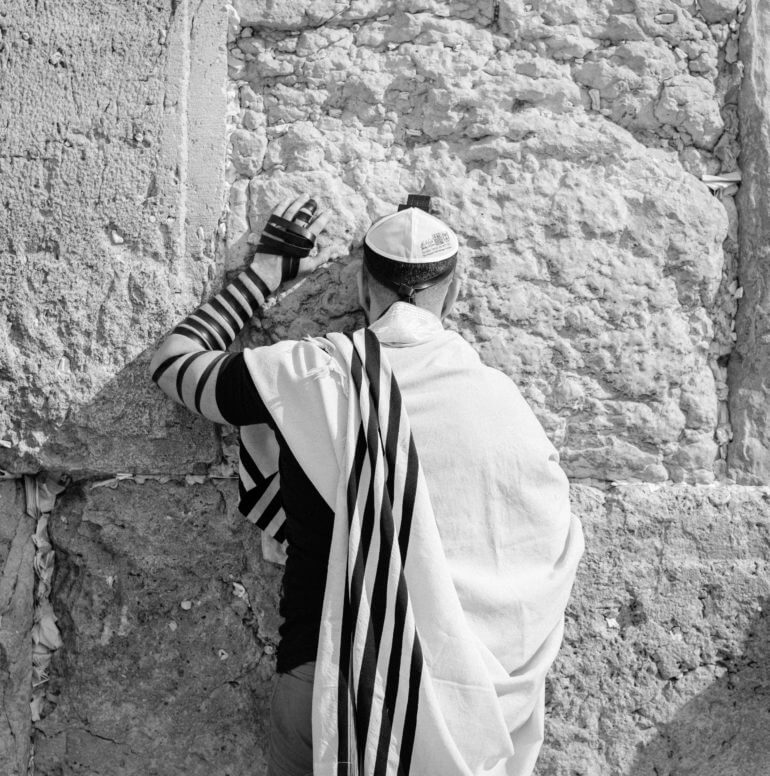
What is the point of Prayer When God Knows What We Want?
Dear Jew in the City,
Why does Hashem need our prayers, especially when He already knows what we want and need? Why is prayer so important?
Sincerely,
Rachel
Dear Rachel,
Thanks for your question. Unfortunately, you’ve got things backwards. God is complete and perfect; we’ve got nothing to offer Him that He “needs.” Sure, He wants us to learn Torah, to perform mitzvos, and yes, to pray, but that’s for our benefit, not His.
The question one must ask is: Since God is perfect and His existence requires nothing else, why did He create the universe? The answer: So that He could bestow His goodness on others. God is the ultimate good and the best thing that could be done for created beings is to allow them to get as close to Him as they are able. However, God doesn’t just hand His creations that connection. He knows that our proximity to Him is more meaningful if we earn it. Therefore, the world contains opportunities to draw closer to God, should we choose to pursue them. (This is all based on the Ramchal’s classic work Derech Hashem, as adapted in my own humble contribution to the field, The God Book.)
Consider the punishment of the nachash, the serpent in Genesis chapter 3. As punishment for his role in the sin of Adam and Eve, the nachash was condemned to crawl on his belly and eat the dust of the earth. The question is asked: What kind of a punishment is this? The dust of the earth is everywhere! The nachash is basically assured an endless supply of sustenance.
That’s actually the punishment. When we need things, what do we do? We turn to God. This is true of all God’s creatures. (See, for example, Psalms 104:21: “Young lions roar after their prey and seek their food from God.” Lions seem to be pretty proficient hunters, but even they rely upon God for their food.) But such is not the case with the nachash. As punishment for inciting the downfall of mankind, God severed that relationship with the serpent. Essentially, He told the serpent, “Don’t bother calling.”
Now, you still might not accept that this is a punishment, but I once heard it explained in the following terms. Imagine a rich man with an 18-year-old son. The rich man has a new wife who insists that he sever relations with the son. So what does the man do? He sets the son up in an apartment, leases him a car and gives him a generous stipend. The son has it made, right? Not so much. The father won’t see him or take his calls. All the son wants is the one thing he can’t have: a relationship with his dad. (A less hypothetical example would be Avshalom, son of King David, who was permitted to return from exile, but his father still refused to see him. In II Samuel 14:32, Avshalom basically asks, “What good is being returned from exile if I’m still estranged from my father?)
So what we want most – or should want most – is a relationship with God. Remember, the greatest good is to get close to Him, and prayer is one of the ways we accomplish that.
But God is not a magical genie; He doesn’t grant wishes. We turn to Him in our times of need and we tell Him what we’d like, but we accept that whatever He gives us is what’s truly best for us. If you invest all your money in lottery tickets and none of them win, you’d probably concede that your strategy failed. However, if you prayed to God and didn’t get the result that you had hoped for, you couldn’t really say that your prayers were unanswered. God answers all prayers, it’s just that sometimes the answer is no.
Not getting what you prayed for doesn’t mean that the effort was wasted. Even if God decides that it’s better for us not to get what we asked for, the act of prayer is inherently meaningful, proximity to God being the greatest good, as we have said. Our Father may not always give us a luxury apartment, a sports car and a stipend, but He gives us His love and attention. This is a great benefit, even if we don’t always recognize it.
So God doesn’t “need” our prayers. He doesn’t “eat” prayers and they don’t give Him powers like a mythical demigod in a B-grade horror flick. We need our prayers because they strengthen our relationship with Him. He wants this for us because it’s for our benefit, not His. And sometimes we have to work for it, because it’s more meaningful than having it handed to us. Whether we get what we think we want or not, the experience itself can transform us for the better.
Sincerely,
Rabbi Jack Abramowitz
Educational Correspondent
Follow Ask Rabbi Jack on YouTube
If you found this content meaningful and want to help further our mission through our Keter, Makom, and Tikun branches, please consider becoming a Change Maker today.







